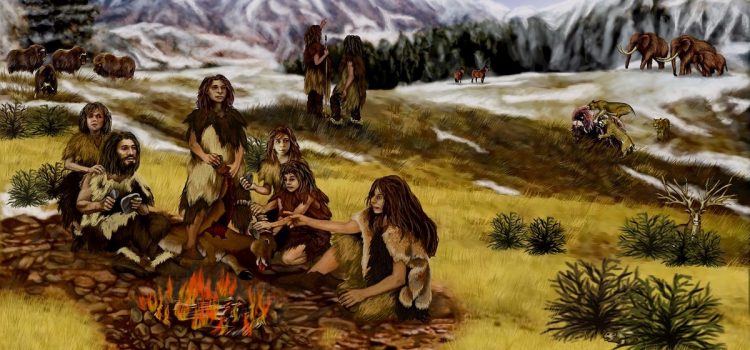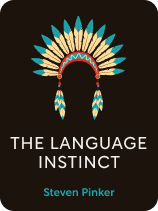

This article is an excerpt from the Shortform book guide to "The Language Instinct" by Steven Pinker. Shortform has the world's best summaries and analyses of books you should be reading.
Like this article? Sign up for a free trial here.
When and how did human language begin? Why did language develop in the first place?
In The Language Instinct, experimental psychologist Steven Pinker argues that language is an innate, biological ability in humans—not just an element of human culture that gets passed from person to person. He discusses the theorized origin of human language—the when, the how, and the why.
Read more to learn about the possibilities of this fascinating subject.
The Origin of Human Language
The scientific community doesn’t provide clear answers on the origin of human language. But, Pinker believes that language is a genetic adaptation that arose from natural selection in early human communities. He says that language could have started evolving four to seven million years ago, although it’s unclear if Neanderthals (an extinct human subspecies) had language. Pinker suggests that random genetic variation might have enabled some humans to express themselves with more nuance than before, and then people with this skill were more likely to survive longer, reproduce, and pass on their language skills.
| The Debate on the Origin of Human Language To date, researchers still aren’t sure if Neanderthals had language or when human languages first appeared. Some researchers argue that language only occurred when Homo sapiens started living in social groups about 100,000-200,000 years ago. Others point out that language was physiologically possible over 20 million years ago in a common ancestor of primates and humans (although the neurological ability to use language is more recent). Unlike other aspects of ancient cultures that leave physical evidence behind (like fragments of tools), spoken languages are much harder to trace. However, some researchers are analyzing the physical capacity of Neanderthals to produce speech by examining fossils of the hyoid bone (below the lower jaw), ear ossicles, and the part of the spine that allows humans to precisely control their breathing. These studies indicate that Neanderthals were capable of producing and hearing complex vocalizations, but this still doesn’t prove that they had syntactic language (following consistent grammar and structural rules) like we have today. Neanderthals might have had the physical anatomy to produce speech and only used it to sing—to soothe children or attract mates—or they might have produced a more basic form of communication. |
Pinker argues that language would have increased humans’ chance of survival by allowing them to express abstract ideas and complex logic. For example, language would help people talk about where they discovered a new potential place to take shelter or warn others of danger by telling a story. Pinker also writes that language would have helped people cooperate and rally together to defeat rivals. He claims that it would have enhanced people’s ability to persuade others—possibly increasing political power for those who were skilled orators. Because of these advantages, natural selection continuously favored people who could express and interpret early forms of language.
(Shortform note: Although Pinker explains how language would have benefited early human communities, he doesn’t go into much detail about the evolutionary precursors to modern language. In The Mother Tongue, Bill Bryson writes that Homo sapiens might have jump-started language development by using onomatopoeia—words that imitate a physical sound, like “thump” or “smack.” Like Pinker, Bryson writes that the ability to describe natural sounds to each other most likely improved social cohesion.)

———End of Preview———
Like what you just read? Read the rest of the world's best book summary and analysis of Steven Pinker's "The Language Instinct" at Shortform.
Here's what you'll find in our full The Language Instinct summary:
- How language is an innate ability—not an element of culture
- A look at unique qualities of human language
- How slang enhances a language, rather than diminishing it






